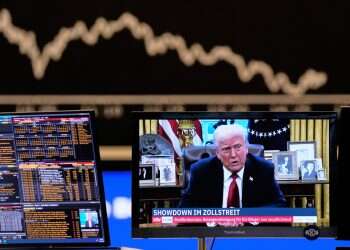On Friday, gold prices climbed by 1.2%, trading at a record high of $3,219 per ounce. Normally we wouldn't trouble you with gold prices unless there was an interesting story to tell, but this time, there is. Since the beginning of the year, gold has risen by more than 21%, and that's where things start to get interesting.
Gold is traditionally considered a "safe haven" for investors worldwide, and some view it as a hedge against inflation. Demand for gold remains relatively stable, and here we're talking about the real economy - Main Street. Gold is the most efficient natural conductor of electricity, which means it's found in every smartphone and nearly every electronic device.
Why is it considered a safe haven? Essentially, as long as the world operates within familiar terms - demand for electronics, chips, computers, and the like - there will be a consistent need for gold. Why a hedge against inflation? Because as demand for electronics and electrical conductors grows, gold prices tend to rise accordingly. At least theoretically, the price of gold should rise in tandem, or at the very least keep pace.

To get a sense of gold's role in the tech world, one need only look at Apple's ESG reports. The company details its gold recycling efforts - your trade-in device gets dismantled, and the materials, including gold, are reused. This process saves Apple tens of millions of dollars each year, around $50 million annually.
Now add to that the rest of the phone manufacturers, computer makers, and semiconductor producers, and you get an ever-growing demand for gold as a conductor. And this is without considering gold's role as a "tradable currency" in large parts of the world - India, China, and Africa, for instance. What emerges is an asset tied to growth, inflation, or any factor that reflects the pace of the real economy.
In any case, when financial markets become volatile and investment decisions harder to make, one of the more reasonable strategies is to turn to commodities - and here, gold takes the spotlight. At least in theory.
If we examine who's investing in gold, it's unlikely we'll find major institutional players like pension funds. Who will we find? Hedge funds and speculators. When we talk about gold, we're talking about the world's biggest speculators, and that means a lot of money is in play.
Analysts covering the commodities market have told international financial outlets that the gold rally since the start of the year is seen as an alternative to exposure in stocks or traditional bonds. In recent days, those looking to take a "time-out" from market volatility have turned to gold. But again, this is just the economic theory explaining the sharp rise in gold prices this year.




